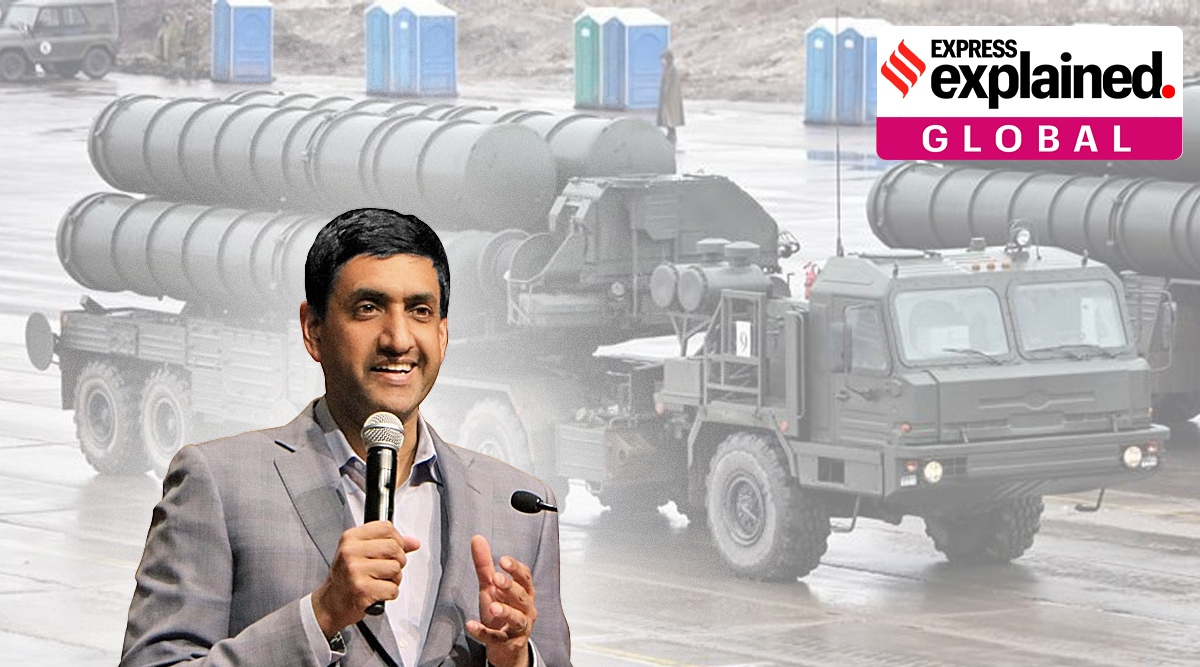“The United States must stand with India in the face of escalating aggression from China…I have been working to strengthen the partnership between our countries and ensure that India can defend itself along the Indian-Chinese border,” said Khanna, the US representative from California.

Earlier this month, Khanna had argued for the exception, saying: “US should take additional steps to encourage India to accelerate India’s transition of Russian-built weapons and defence systems while strongly supporting India’s immediate defence needs.”
Other American lawmakers have also spoken for giving the waiver to India, in the past. In April 2021, Republican Senator Todd Young, a member of the Senate Foreign Relations Committee, wrote that if the Joe Biden administration imposes sanctions on India it would undermine their relations and also affect the Quadrilateral Security Dialogue (QUAD), the strategic security grouping of the US, Japan, Australia, and India that is billed as a network of democracies in the Indo-Pacific region.
What is the CAATSA, and could it apply to India?
CAATSA is a law that came into effect in the US in 2017, and was meant to punish countries having deep engagements with Russia, North Korea, and Iran using economic sanctions. It said countries having a “significant transaction” with Russian intelligence and military agents will be subject to at least five kinds of sanctions.
Ordinary transactions will not invite sanctions, and the decision of who has sanctions imposed on them comes down to the interpretation of “significant transaction”. This is one of the various waivers or exemptions mentioned, such as the transaction not affecting US strategic interests, not endangering the alliances it is a part of, etc.
Section 231 of the law notifies 39 Russian entities, including all the major defence companies like Rosoboronexport, Sukhoi Aviation, Russian Aircraft Corporation MiG, transactions with whom could invite sanctions. Almaz-Antey Air and Space Defence Corporation JSC, who have made the S-400 system, are in this list.
Story continues below this ad
India has purchased the S-400 Triumf missile system, which has advanced capabilities to judge the distance from a target and launch a surface-to-air missile attack. Five such systems were bought by India in 2018 for US$ 5.5 billion and in November last year, their delivery began. They were deployed in Punjab.
However, the application of CAATSA is not limited to the S-400, and may include other joint ventures for manufacturing or developing weapons in the future, or any other kinds of major deals with Russia.
Why did the US enact CAATSA?
The US flagged issues of Russia’s alleged interference in its 2016 Presidential elections and its role in the Syrian war as some of the reasons for punishing engagement with it. Former US President Donald Trump, who was accused of “colluding” with Russia in the elections and during whose term CAATSA came into effect, called the Act “seriously flawed”.
EU countries such as France and Germany that had even more significant ties with Russia for oil and gas supply before the Ukraine-Russia conflict in 2022, had also criticised CAATSA. France’s foreign ministry said the new policy seemed “at odds with international law due to the extra-territorial reach,” according to a Reuters report from the time.
Story continues below this ad
In 2020, Turkey was sanctioned for its purchase of the S-400 system. Then US Secretary of State Mike Pompeo had said in a press release: “Today, the United States is imposing sanctions on the Republic of Turkey’s Presidency of Defence Industries (SSB)…for knowingly engaging in a significant transaction with Rosoboronexport, Russia’s main arms export entity”. The release said that Turkey had ignored repeated reminders to not go ahead with the purchase, and was, therefore, sanctioned.
So why was CAATSA not imposed on India till now?
The US had never categorically stated whether CAATSA would apply to India. In March 2022, it was reported that President Biden was yet to decide on the matter, possibly due to India’s importance as a strategic ally in the region for the US. Donald Lu, Assistant Secretary of State for South and Central Asia, said: “India is a really important security partner of ours now. And we value moving forward that partnership and I hope that part of what happens with the extreme criticism that Russia has faced is that India will find it’s now time to further distances.”
With the ongoing conflict in Ukraine and the US hardening its stance against Russia, India has continued its neutrality and not joined any of the sanctions against Russia imposed by Western countries. India has mentioned the need for the S-400 missiles for its border defence several times in the past.
Then External Affairs Ministry spokesperson Anurag Srivastava had said in January 2021 that “India has always pursued an independent foreign policy. This also applies to our defence acquisitions and supplies which are guided by our national security interests.”
Story continues below this ad
Before Rep. Ro Khanna and Sen. Todd Young, several US lawmakers have spoken for granting India an exception. In October 2021, Senators and India Caucus Co-Chairs Mark Warner (D-Virginia) and John Cornyn (R-Texas) wrote to Biden asking him not to sanction India: “…We strongly encourage you to grant a CAATSA waiver to India for its planned purchase of the S-400 Triumf surface-to-air missile system.”








































